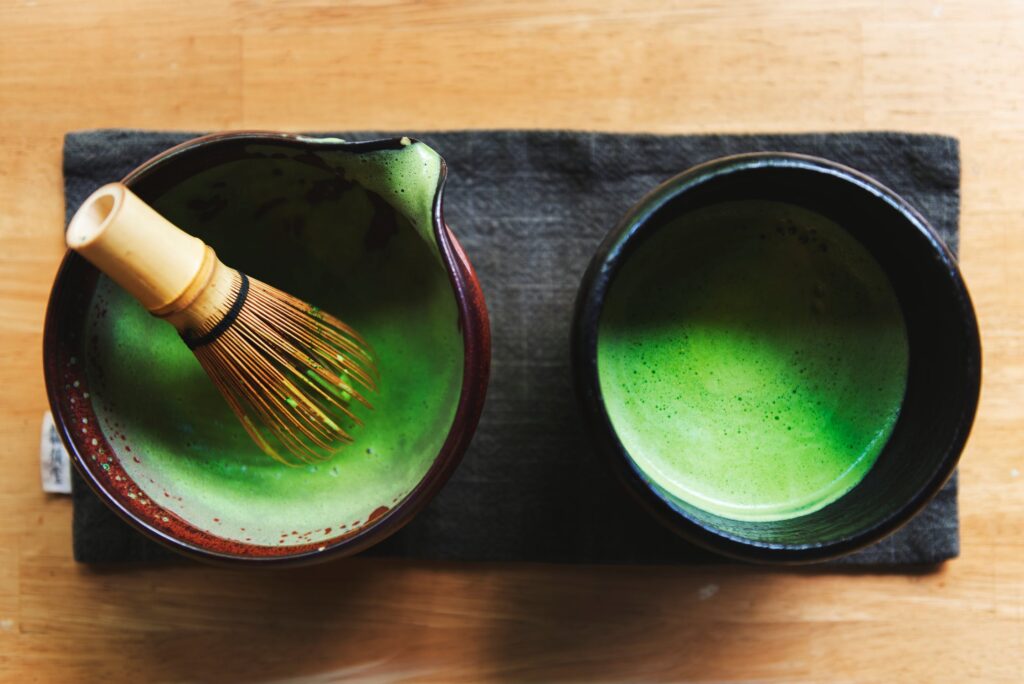Hi Everyone,
“Fancy a cuppa?”
The first time I heard that was from an English friend, who had to say it twice before I realised she was essentially asking me if I wanted to take time out for a cuppa tea and, as she would say, “a chin wag.” (I found it so easy to fall in love with English colloquialisms.) Obviously, over time, I learnt that you never take tea on the run. In fact, there is an entirely separate entry on the menu of almost any decent English café or hotel entitled “Afternoon Tea,” which, if you don’t know already, involves thinly sliced sandwiches, scones (with jam and cream), and of course cakes. (This is where every British pastry chef cuts her teeth.)
I always assumed my fondness for tea came from my brush with the English because I did not grow up in a tea-drinking family, barely even, except for a few years in France, a coffee-drinking household, apart from a grandmother who drank one only (thank you very much) morning mug of instant coffee with a snow-white pellet of saccharin, dispensed from the back of a one-inch-high, bird-shaped box, with the aid of miniature, claw-shaped tongs; and a maternal grandfather whose morning presence was only recognized by the cheap, strong Arabica scent still hanging in the air, long after he had left for work.
My fondness for tea may have come from the English, but it did not begin with them. It originated with the Japanese, a Buddhist monk to be precise. My first tea ceremony remains as clear and delightful a memory as if it had happened this morning, a parenthesis in time, if you will, a lesson forever treasured.
While attending Kansai Gaidai University in Hirakata, Osaka, at age 21, I took it upon myself as only the young and brave (perhaps foolish) can to travel the country on my own, taking myself wherever my feet might wander. Attracted to the romantic and impenetrable—stately pagodas, mystifyingly ornate pine forests, mists on the Japan Sea, the ancient capitals of Kyoto and Nara, and of course the benign omnipresence of the Buddha and his many monasteries—I felt I could go anywhere and be pleased by what I saw.
On one journey, traveling far away from any town, I made my way up a terraced hillside to a simple monastery. From there one thing led to another, and probably to what could only have happened then, when a tall blonde was still called a gaijin, which means outsider, alien, or at least non-Japanese. One wide-eyed monk motioned to another until finally, with my Pentax camera in hand, I was seated in a small building, which I now know was a tea house, in front of a pleasantly wizened figure I imagined to be the abbot, or he might have been the only monk there who spoke English.
He bowed, I bowed lower, and so it went, until we jointly laughed and he motioned me to sit, asking me if I would like tea. Feeling a bit captive by what appeared to be an amusing interruption to both our days, I agreed, sliding my backpack and camera to the tatami mat. I sat back on my heels in front of a low table, while he mixed, moved, smiled and talked, of what I cannot recall, but the luminescent green froth brought to a neat head by a smartly whipped bamboo whisk and offered to me two-handed in a polished crockery dish, I do recall. In an instant, all that I knew, all that I’d experienced, narrowed down to that offering, that moment, from those two aged hands.
It was no more than a few ticks but I felt transported to a place of tranquillity, beauty and inner calm before I woke again to the wider world, the tea, the mats, the shoji screen and the tolling of the monastery bells, along with our renewed laughter. Where had I drifted? We smiled incessantly then shared a few pleasantries. I was entranced by the bonshō, the Buddhist bells, marking specific prayer times or just the passing of the day.
My abbot gracefully reached back when he saw my reaction and slid open a door, revealing a high-tech sound system. “Bonshõ,” he said, smiling even wider. For an instant I recalled the perfectly placed boulders outside one of the great Japanese palaces I had visited. “Fiberglass,” my guide had said, knocking on the hollow boulder twice, “fiberglass.”
That cuppa, those Buddhist bells, the juxtaposition of old and new, the pleasantly aged face and hands, have stayed with me for a lifetime. In an instant, he gave me a piece of Japan, her soul, her beautiful unit of measurement: hand-held. I find a reminder of that in every cup of tea I drink, whether matcha, green, Earl Grey, English Breakfast, builder’s or verveine. It’s a pause, a pushback, a willed, peaceful hiatus in time.
A cuppa.
Happy travels to wherever they may lead you in August,
Marlene

